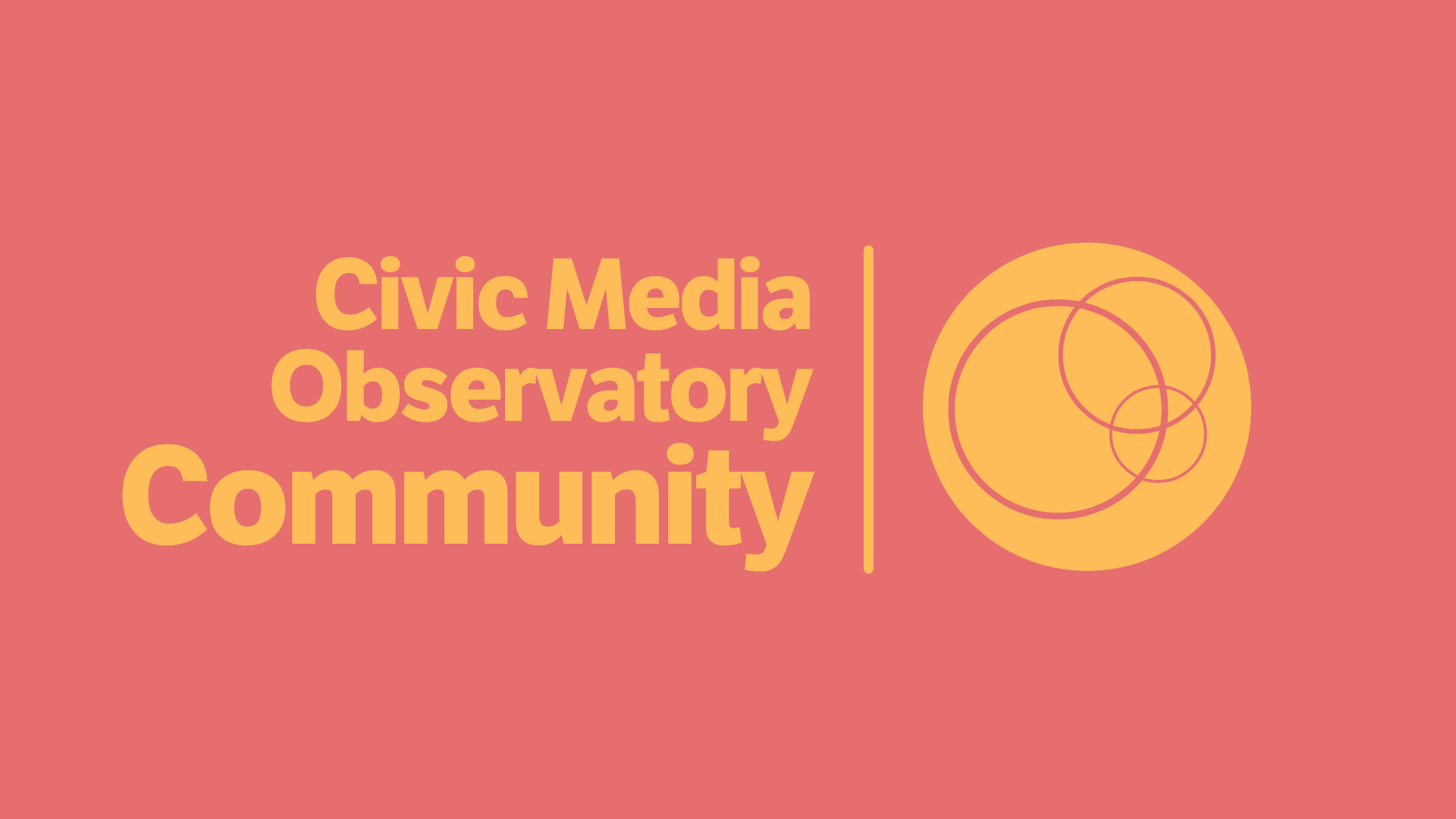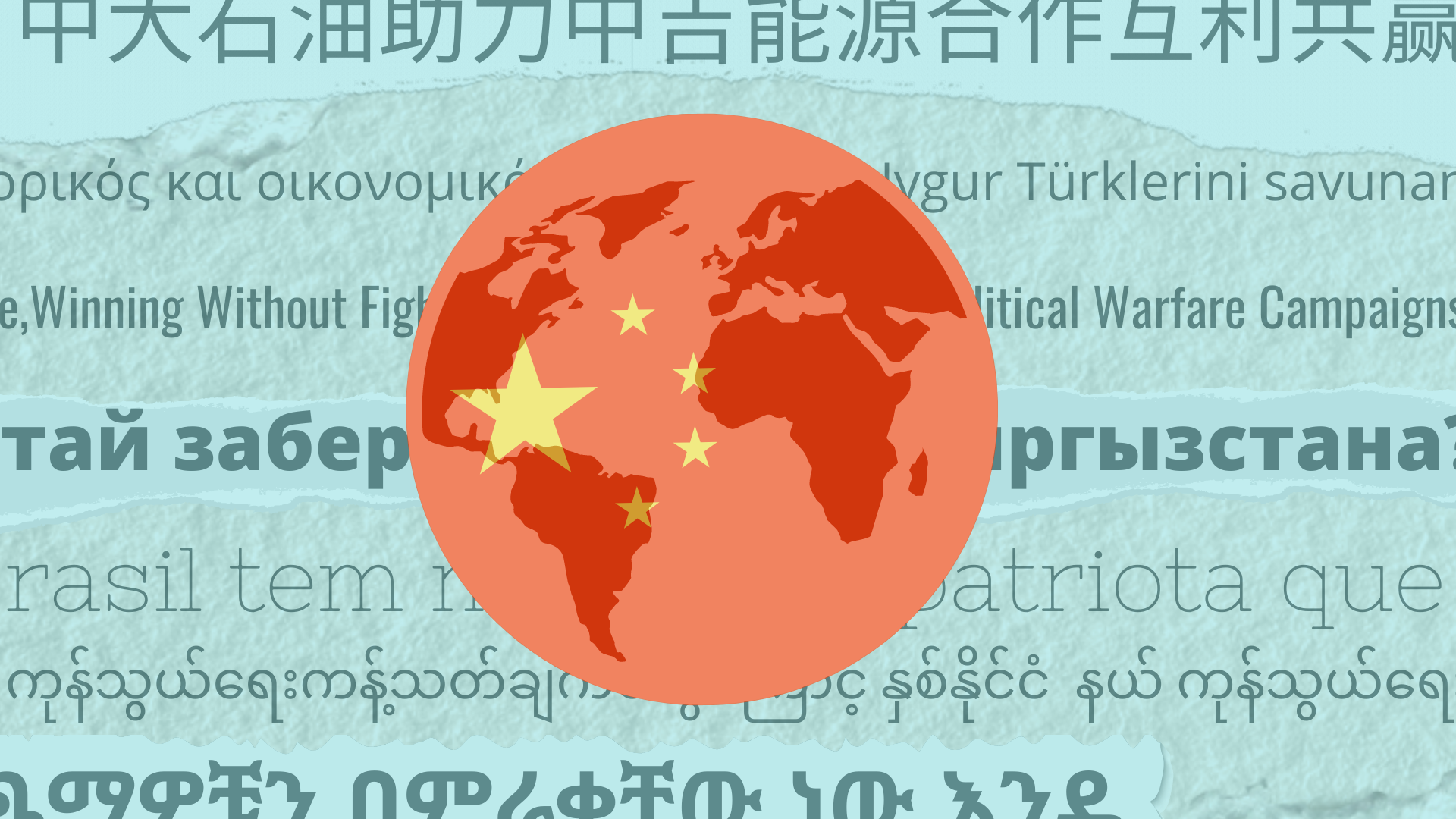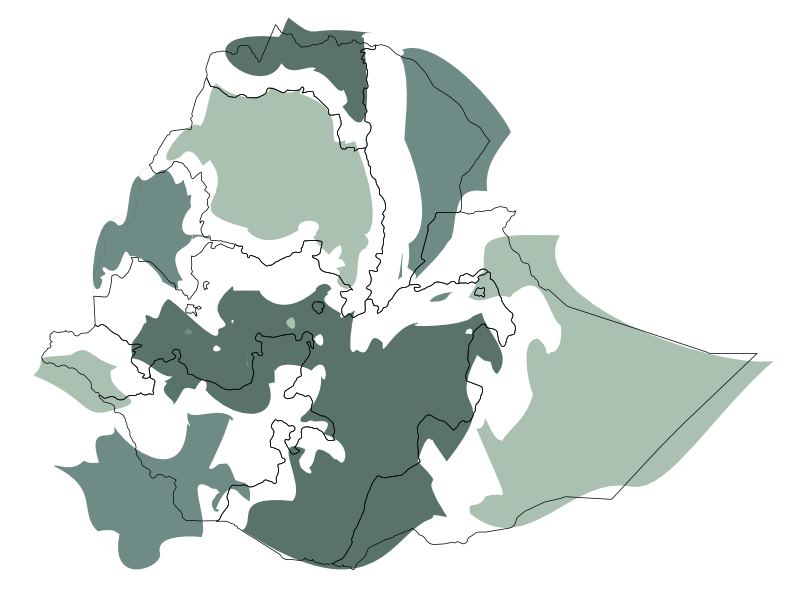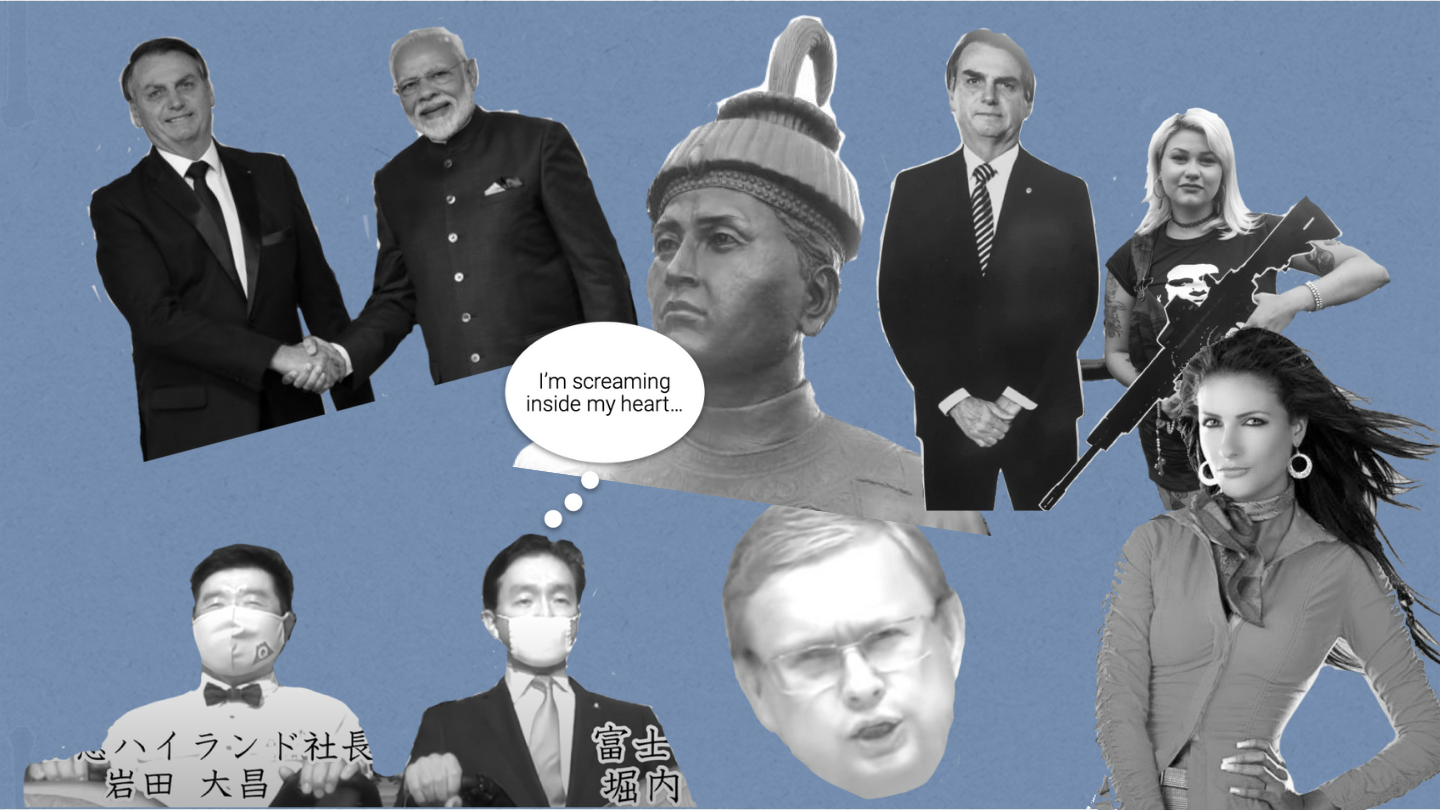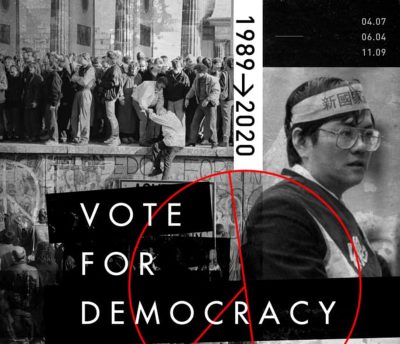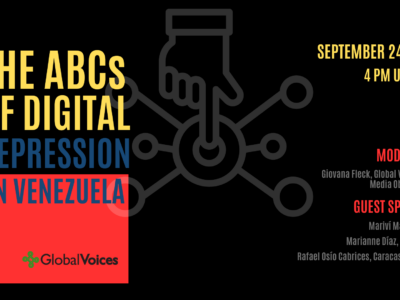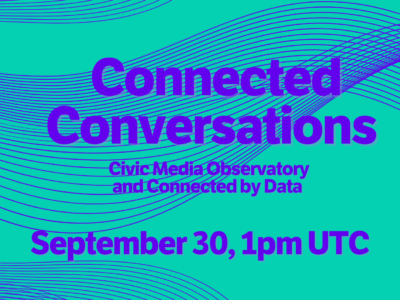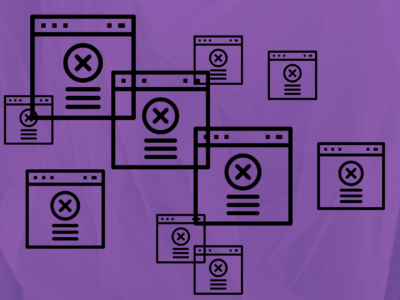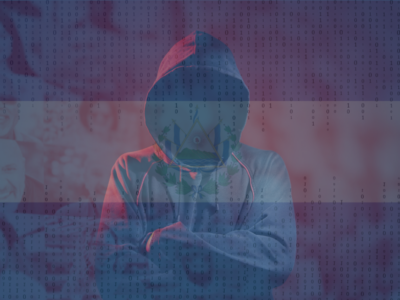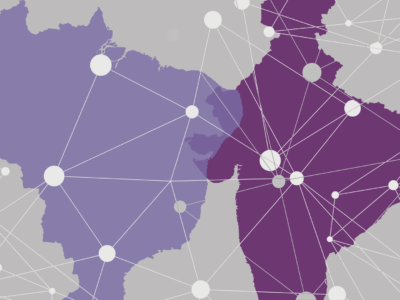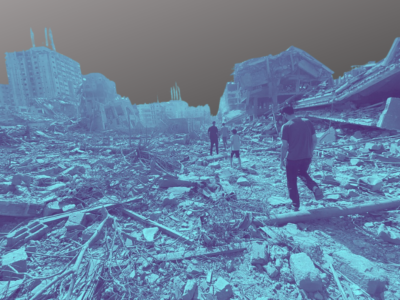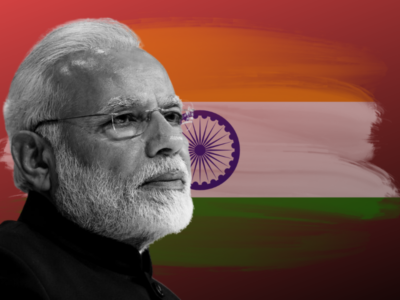The Civic Media Observatory is a method to investigate and decode how people understand information and create knowledge in complex and seemingly chaotic media ecosystems.
Global Voices’ Civic Media Observatory research identifies and tracks key themes and narrative frames that emerge around events, trends and other phenomena, and explains the context and subtext of local, vernacular, and multilingual media. Researchers use an expansive definition of “media” that includes items appearing in mass media, social media platforms, open internet sources, and offline sources.
Observatory research explores the civic impact of media items, offering insight into the effect of narratives on audiences’ understanding of events and social phenomena, and identifies themes of urgent public interest. A key feature of the method is the assigning to media items a civic impact score based on international human rights standards. Using this score, we make claims about the potential effects of narratives on audience behavior and on civic discourse.
Follow our work in Undertones, our weekly newsletter. In each edition we’ll analyze an event, emerging trend, or a complex story, identifying key narratives of urgent public interest, and delving deep into the context and subtext of local, vernacular and multilingual media. Undertones also offers an entry point into the public datasets that underpin our Observatory work.
Subscribe to Undertones
The Observatory method also suggests actions to be taken on the basis of civic impact scores. Project teams work as trusted partners with organizations such as media and tech companies and nonprofit advocacy organizations, to identify and recommend actions for certain categories of content, including recommendations for monitoring of narratives, keywords and phrases that have the potential to cause harm.
Observatory work is focused in part on questions of misinformation, disinformation, disruption and confusion, but goes beyond fact-checking. Our larger goal is to identify information that has civic value in given contexts, and around specific events and trends. The Observatory is also deployable as a method for rapid identification, sorting and analyzing of media items and their effects.
Researchers work in Airtable, a relational database, that allows for rich interlinking of media sources, themes, narrative frames, media items, and languages, as well as granular analysis of dozens of metadata fields we use to analyze media items. This approach helps us to build consistent responses to questions about the accuracy, truthfulness, verifiability, and ideological leaning underlying media items, as well as deeper analysis of context and subtext, when warranted.
Observatory research feeds into our editorial work as well, helping us to tell stories about underlying narratives, perspectives, and claims.
Since the launch of the Observatory in the middle of 2019, we have run large transnational investigations on the topics of EU Accession, COVID-19, Taiwan’s presidential election, conflict in Ethiopia, and China’s Belt & Road Initiative, as well as focused investigations into elections in Myanmar, Brazil, Bolivia, and Venezuela and country monitoring projects in India, Myanmar, Brazil, Bolivia, Venezuela, Haiti, Ethiopia, Russia, Bangladesh, Pakistan, Afghanistan, Mali, and Nicaragua.
Slide presentation on the Civic Media Observatory methodology.
Observatory projects
Data Narratives: Civic Media Observatory's project on Data Governance
Data Narratives aims to identify and understand the discourse on data used for governance, control, and policy in El Salvador, Brazil, Turkey, Sudan, and India.
Community Civic Media Observatory
The Community CMO employs an innovative methodology to analyze local media ecosystems, for which our community’s insights are invaluable.
Unfreedom Monitor
The Unfreedom Monitor is an Advox initiative to deepen our understanding of the relationship between technology and authoritarian power.
Country monitor observatories 2021-2022
Monitoring of emerging themes and narratives in Afghanistan, Pakistan, Myanmar, India, Bangladesh, Turkey, Russia, Mali, and Nicaragua in 2020-2021.
China’s Belt and Road Initiative: Deal or steal?
As China expands and advances its interests as a global power, we explore its influence in other countries.
A clash of narratives: National identity and violent conflict in Ethiopia
Long-standing conflicts over the contours of the Ethiopian state have once more exploded into violence. Unreconciled disagreements between the state and regional powers in Oromia and Tigray threaten to tear Ethiopia apart.
Country monitor observatories 2020-2021
Monitoring of emerging themes and narratives in Myanmar, India, Bolivia, Brazil, Venezuela, and Haiti in 2020-2021.
Narratives of COVID-19
Global Voices decodes narratives of COVID-19 in 10 countries as it spreads around the world in 2020.
Taiwan elections 2020
Taiwan held presidential elections on January 11th, 2020 to determine the course of its political and economic orientation for the next four years.
EU in the Balkans: An accession too far
North Macedonia and Albania have long sought to become members of the EU. The debate over their application pitted ideas of nationalism, corruption, EU reform and future relations with regional powers.
Stories from the Observatory
Stories about Civic Media Observatory
GV webinar: The ABCs of digital repression in Venezuela
In this webinar, we explored the Venezuelan regime's "package" of digital repression instruments, how they have evolved, and analyze how they have been used after the last presidential.
What does data governance mean to you? Join us for an online discussion on September 30
Connected Conversations is a series of informal, virtual discussion sessions focused on the principles of collective, democratic, participatory, and deliberative data governance.
What online narratives tell us about the aftermath of the election in Venezuela
For Venezuelans, one of the main narratives shows that the current situation exceeds the region's traditional dichotomy of left versus right and evidences a sense of overcoming polarization.
One hundred Turkish lira for your data: How Turkish citizens lost all expectations of data security and privacy
Data leaks have become so common in Turkey that most Turkish citizens do not expect any privacy online anymore.
Starlink in Sudan: A lifeline or war facilitator?
Sudan's conflict has crippled telecommunication as both sides leverage and disrupt internet services to gain control.
Website blocking in India: One arrow for all
A report last updated in March 2024 by a digital rights organization observed that 55,607 websites were blocked between 2015 and 2023.
The two deaths of the ‘Brazilian DSA’
Bill 2630/2020, sometimes dubbed the “Fake News Bill” by Brazilian mainstream media or the “Censorship Bill” by Brazilian right-wing media, emerged as part of a hectic political scenario.
Internet shutdowns in Sudan allow the bypass of regulations
Sudan’s internet shutdowns bypass legal frameworks, raising concerns about human rights and highlighting the growing influence of decentralized technologies like Starlink.
Controversial hacktivists may have prompted El Salvador’s censorship of Telegram
Salvadoran hacktivists disclose personal identity of millions of Salvadorans. While their ethics are put into question, they want to expose Bukele’s government as corrupt and inefficient.
Bitcoin mining's toll on El Salvador leaves communities without water
Communities in San Martín and Ilopango are left without access to drinking water as the Salvadoran government prioritizes Bitcoin mining projects
The Brazilian and Indian dilemma: How to regulate AI and Big Tech?
While the eagerness to regulate new technologies is understandable, it can sometimes result in unintended and adverse consequences.
Lion or mosquito: The state of the AI debate in Turkey
While elsewhere around the world discussions around AI are widespread and accessible, in Turkey this has not been the case. Not yet anyway.
Undertones: Myanmar’s E-ID system means progress or surveillance?
Since the coup on 1st February 2021, citizenship ID card inspections by Myanmar's military regime authorities have become commonplace on roads, at checkpoints, and during nighttime house inspections.
Undertones: A dictionary to understand the war in Gaza
Understanding the impact of language is crucial for a nuanced perspective and to acknowledge the ongoing struggle for justice amid the complex realities on the ground.
Cyberbullying hinders women’s participation in Indonesia’s 2024 elections
"Online attacks ramp up during elections which now also involve cyber troops running campaigns in the digital world and targeting women."
Undertones: 2023, a year of narratives
We unpack the narratives surrounding our times’ most pressing topics
Undertones: Critical voices from Israel, inhibited voices from Palestine
In this newsletter, we delve into Israel’s war on Gaza and provide behind-the-scenes reflections about our research and difficulties of covering a war.
Undertones: From India to Bharat, a decolonial rebrand or an erasure?
India is a wider term encompassing the country’s secular and multicultural nature, while Bharat comes from a Sanskrit term with ethnoreligious undertones.
Renowned activist warns against the growing far-right in Portugal
Mamadou Ba draws attention to the shadows of Portugal's colonial past in the face of growing far-right politics
Global Voices seeks researchers from El Salvador to participate in our Civic Media Observatory projects
Researchers should either be based in or have strong knowledge and ongoing access to local information from El Salvador.
Undertones: What pop culture tells us about Myanmar’s politics
Democracy activists say that military junta is investing in the entertainment industry to distract people from the violent regime.




